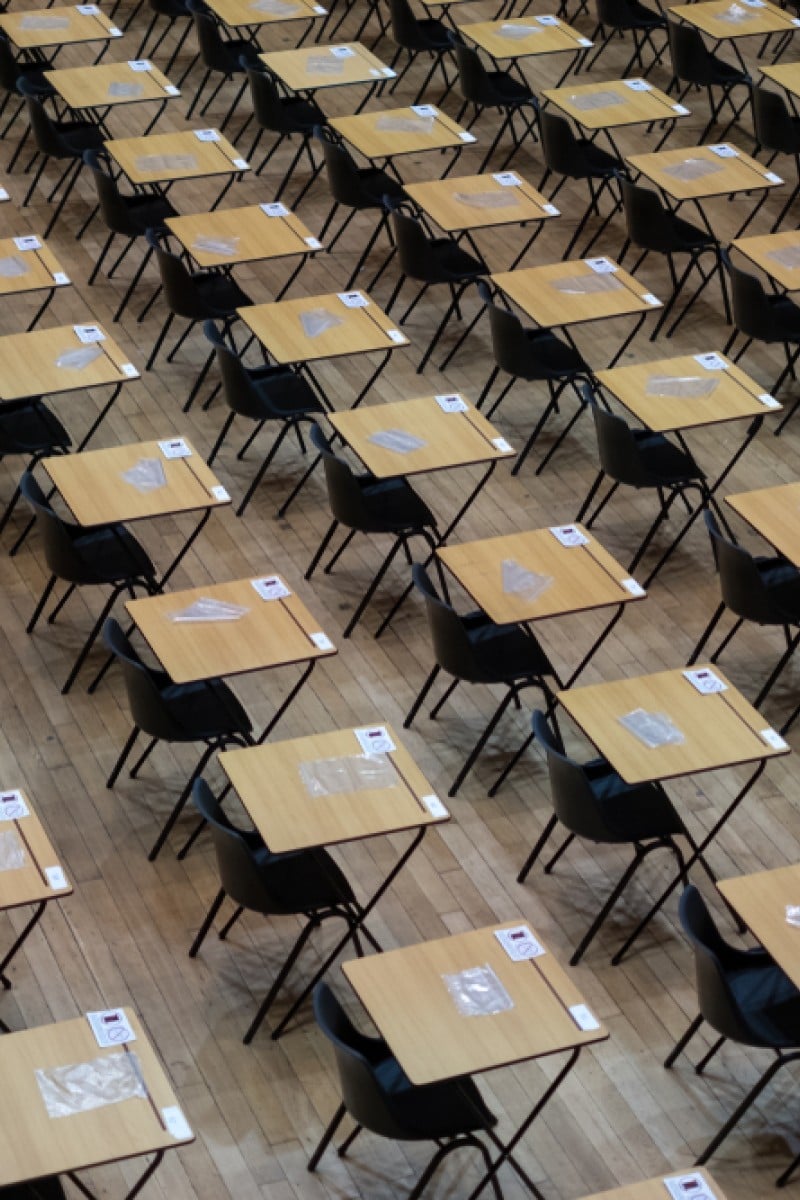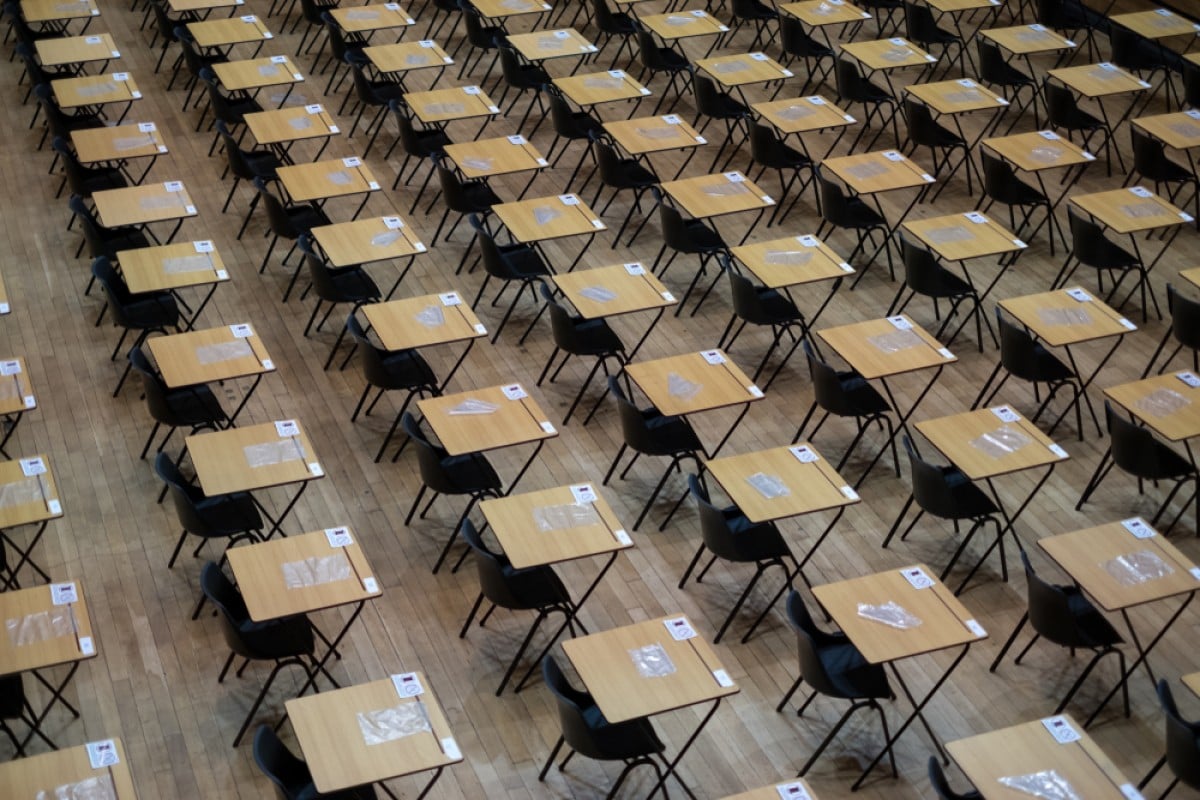
Tips for acing the HKDSE Chinese Language exam if you're more nervous than usual
- Beacon College's star tutor Lam Yat-yan shares expert advice
- The biggest takeaway? Preparation is key

In less than three weeks’ time, more than 50,000 students – all wearing surgical masks – will file into exam halls for the HKDSE Chinese Language exam. If you’re one of them, we get it if you’re more nervous than usual, given the class suspension and cancelled mock exams.
To help you prepare, Young Post asked Beacon College’s Chinese language star tutor Lam Yat-yan for some advice on how to approach these tough papers.
Paper 1: Reading
In this paper, you’ll be presented with comprehension questions based on a number of prescribed classical Chinese texts – accounting for 30 per cent of the paper’s total score –and some previously unseen contemporary Chinese passages.
The classical excerpts are taken from the 12 prescribed readings you will have covered in school. Of course, they is no way to know which texts the exam board will choose, but Lam says it’s rare for the same one to appear two years in a row.
“If you discount the texts which have appeared in the last two years, you can focus on the remaining ones – including Xiao Yao You and Liu Guo Lun – which are more likely to occur this year,” says Lam.
Even so, it’s a good idea to familiarise yourself with all of them, and their central themes. Unlike the modern section of the paper, the classical section is where you can really prepare. You’ll feel a lot better having those marks in the bank if you then struggle with the questions on the modern texts.
Last minute tips for your HKDSE Chinese Language speaking exam
To tackle the contemporary texts, Lam says the key is to do as many past papers as possible, to get an idea of the type of questions that usually accompany certain styles. “That way, when given a piece of, say, narrative writing, students will be mentally prepared for questions on the central character’s emotions or motives,” he explains.
With such questions, Lam warns against giving the most obvious answer. It’s easy, for example, to assume that there is a direct correlation between a character’s actions and their feelings. But it’s not always true; you should also consider other factors that may influence their feelings.
It’s also very easy to misinterpret questions. “Students sometimes confuse the word ‘mentality’ with ‘values’ or ‘personal traits’,” notes Lam. You can avoid mistakes like this by carefully going through past papers with the marking scheme beside you, so you can see exactly what is required in each question.
Lam adds you can also prepare for the unseen passages by studying the concepts that will definitely be tested, such as characterisation, literary devices and composition techniques.
What to do when there's a dominant candidate taking over your HKDSE Chinese exam group discussion
Paper 2: Writing
In this paper, you will need to choose one of three suggested essay topics and write at least 650 words about it. The first question usually requires you to write a narrative or descriptive essay, and the other two will be argumentative essays.
“The questions on argumentative essays have become broader in recent years,” says Lam. “Instead of asking students to compare and contrast two different subjects or themes, students have been asked to write on topics like ‘On Enemies’, ‘On Confidence’, or ‘On the Effectiveness / Ineffectiveness of Studying’.”
Taking this last topic as an example, Lam says students tend to give answers such as “studying is useful because it instils us with knowledge” which he feels is a little vague. “Students should elaborate on the actual benefits of school learning,” he says, giving this example: “Not only is education capable of leading one to better career prospects, but it can also cultivate one’s tastes, manners and soul. It could even inspire an individual to change the world.”
How to study for the HKDSE, as told by top scorers at the University of Hong Kong
To score well in argumentative essays, Lam says you need to practise “multidimensional thinking”. In other words, consider a topic from various angles, taking into account internal and external factors, and short and long-term effects. You might also want to try to find a more unique argument, or a point of view not normally considered. “Examiners will assess your depth of thinking and arrangement of ideas,” Lam says. Make sure your arguments are clear, though, so the reader can easily follow your line of reasoning.
If you struggle with this section when doing past papers, Lam suggests picking an argumentative essay topic rather than a descriptive one, as they are easier to plan for.
“Prepare about 10 examples which would be applicable to various arguments,” Lam recommends.
If you are planning to go for the descriptive essay, make sure the turning point of your story is handled with care. “Set aside about 400 words to depict the [decisive moment] and the transition involved, whether it’s a change of emotion, opinion or perspective,” he says.
Hong Kong's Education Bureau launches online tools for HKDSE 2019 candidates for results day
Paper 3: Listening and Integrated Skills
The final paper consists of multiple choice questions which test your listening skills, and writing tasks which require you to interpret and elaborate on certain information, as well as demonstrate your argumentative skills.
In the writing task, it can be difficult to the strike the right balance between interpreting the data you’ve been given, and constructing a solid argument around it. “Students should reserve at least 30 minutes for the latter part,” Lam advises.
He adds that it can be tempting to take the data you’ve been given and jump straight to a conclusion, but you’ll need to provide an explanation, too – just like showing your work in maths.
Lam predicts speech-writing is very likely to be tested this year. “There is a high chance students will be asked to write a personal letter or an official letter as well,” he adds.
